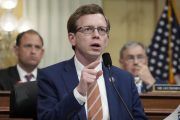Hundreds of climate scientists across the globe are petitioning President Donald Trump to withdraw from a United Nations environmental treaty ratified in 1992 by President George H.W. Bush. Their message delivered last week is succinct:
We urge the United States government, and others, to withdraw from the United Nations Framework Convention on Climate Change (UNFCCC). We support reasonable and cost-effective environmental protection. But carbon dioxide, the target of the UNFCCC, is not a pollutant but a major benefit to agriculture and other life on Earth. Observations since the UNFCCC was written 25 years ago show that warming from increased atmospheric CO2 will be benign — much less than initial model predictions.
More than 300 eminent scientists representing a vast array of fields and disciplines signed the missive, amidst major media rumors that President Trump is hedging on his campaign promise to pull out of the Paris Agreement on climate change. President Obama signed on to that UN contract without bothering to garner congressional approval, promising to drastically cut U.S. greenhouse gas emissions. The Paris Agreement went into effect last November and is, according to the UN website, a legally binding global climate deal falling under the auspices of the UNFCCC.
Climate alarmists are reeling over Trump’s intentions for the Paris Agreement, but cooler-headed scientists urge him to go a step further. They’re asking for complete withdrawal from the UNFCCC, which one petition signer criticizes as “an outdated international agreement that targets minor greenhouse gases, primarily carbon dioxide (CO2) for harsh regulation.” So states Dr. Richard Lindzen, professor emeritus of atmospheric sciences at MIT. “Carbon dioxide is not a pollutant,” he explained in a cover letter accompanying the petition. “Since 2009, the U.S. and other governments have undertaken actions with respect to global climate that are not scientifically justified and that already have, and will continue to cause serious social and economic harm — with no environmental benefits.”
Lindzen went on to defend CO2 as a vital atmospheric asset. “There is clear evidence that increased atmospheric carbon dioxide is environmentally helpful to food crops and other plants that nourish all life,” he wrote. “It is plant food, not poison.”
However, Lindzen and his co-signers may be disappointed, because unlike the Paris Agreement, the UNFCCC is a U.S. Senate-approved treaty. Since Obama shook hands at the Paris talks without congressional approval, Trump can relatively easily cancel U.S. involvement in the Paris Agreement. All it would take is a little patience, since the pact “prohibits any exit for a period of three years, plus a year-long notice period,” according to the French environment minister, Segolene Royal, when questioned about Trump’s announcement by Agence France-Presse.
Withdrawing from the UNFCCC could be more difficult since the Senate ratified that treaty in 1992. “The Constitution sets forth a definite procedure for the President to make treaties with the advice and consent of the Senate,” explains the Congressional Research Service, “but it does not describe how they should be terminated.” However, it’s likely that Congress would want some say in the matter.
The skeptics’ appeal, dubbed The CO2 Coalition Petition, continues to garner signatures through the Swedish blog Klimatsans.com. It comes on the heels of another plea made by 800 scientists in December, lobbying for the president to “take immediate and sustained actions against human-caused climate change.” Interestingly, their open letter offers no scientific basis for their claim that climate change “threatens America’s economy, national security and public health and safety.” Rather, it appeals to a political goal, warning that, should Trump follow through with his campaign promises, “The United States will lose its seat of influence at the international negotiating table, and will cede to China, the EU, and other countries its authority as a political, technological, and moral leader.”





